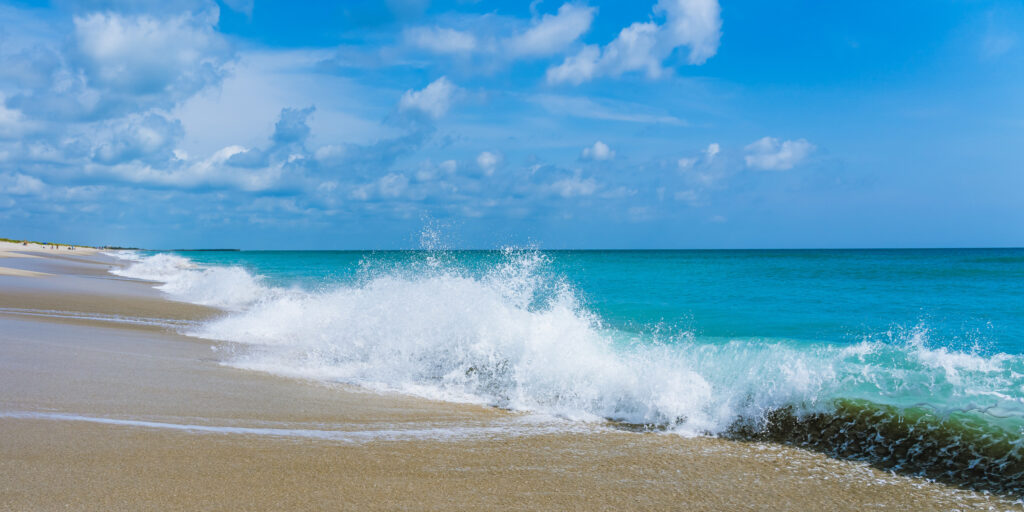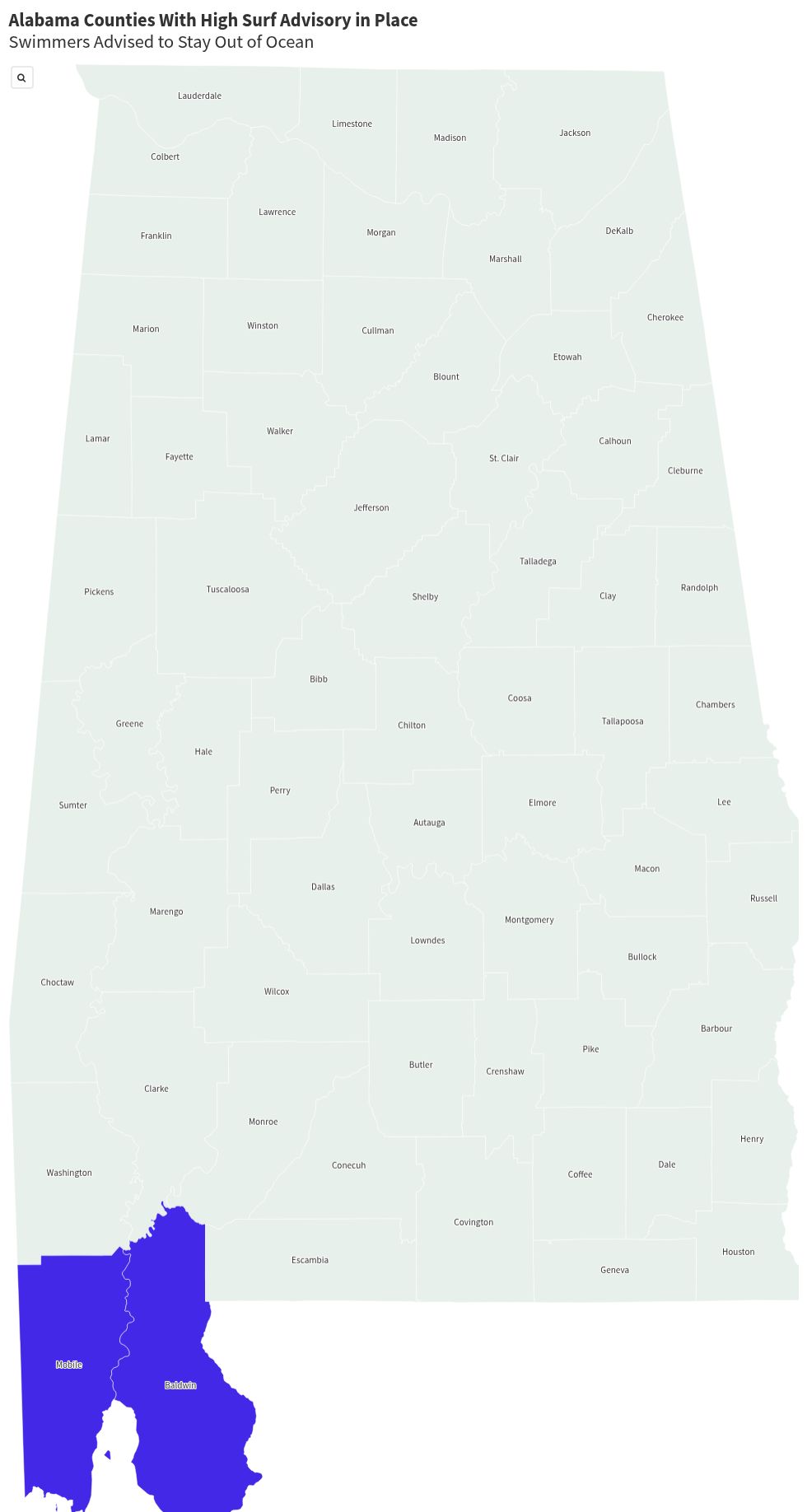Dangerous waves at beaches in Florida and Alabama have prompted National Weather Service (NWS) meteorologists to issue a high surf advisory warning swimmers of hazardous beach conditions.
The high surf advisory for the Tallahassee, Florida, forecast region and the Mobile, Alabama, forecast region will remain in effect through 6 a.m. local time Wednesday morning. Each region also has a rip current risk in place until Thursday and Wednesday, respectively.
Breaking waves were measured up to 7 feet tall in the surf area, prompting the warning. The high surf advisory is in place for coastal parts of Mobile and Baldwin counties in Alabama and coastal parts of Escambia, Walton, Bay, Santa Rosa and Okaloosa counties in Florida.
“Inexperienced swimmers should remain out of the water due to dangerous surf conditions,” the high surf advisory said. “If caught in a rip current, relax and float. Don’t swim against the current. If able, swim in a direction following the shoreline. If unable to escape, face the shore and call or wave for help.”
NWS lead forecaster John Purdy told Newsweek that the high surf is caused by “moderate to strong southeasterly winds over the entire Gulf of Mexico.”
He said the wind is pushing the waves onshore across the Mobile and Tallahassee forecast areas.
In addition to posing hazards at the beach, the high surf is also contributing to coastal flood risk in the areas.
“Around the time of high tide this evening, water levels up to 2 feet above normally dry ground along the immediate coast are expected,” the Tallahassee NWS office said in the alert. “This will lead to flooding of lots, parks, and roads along the waterfront with only isolated road closures expected. Dangerous swimming and surfing conditions and localized beach erosion. Rip currents can sweep even the best swimmers away from shore into deeper water.”
Coastal floods can cause some roads to close, the alert said.
“If travel is required, allow extra time as some roads may be closed,” the NWS office in Mobile said in the alert. “Do not drive around barricades or through water of unknown depth. Take the necessary actions to protect flood-prone property.”
Other states experiencing high surf in the United States include Alaska, California, Washington and Oregon. An atmospheric river and bomb cyclone in the Pacific Northwest is causing unsettled waters at beaches in those states.
“Beachgoers should never turn their back on the ocean and remain alert to surf conditions. Avoid walking on area beaches and jetties,” one of the warnings said. “Large waves may cause serious injury or sweep people into dangerous seas.”
Read the full article here

